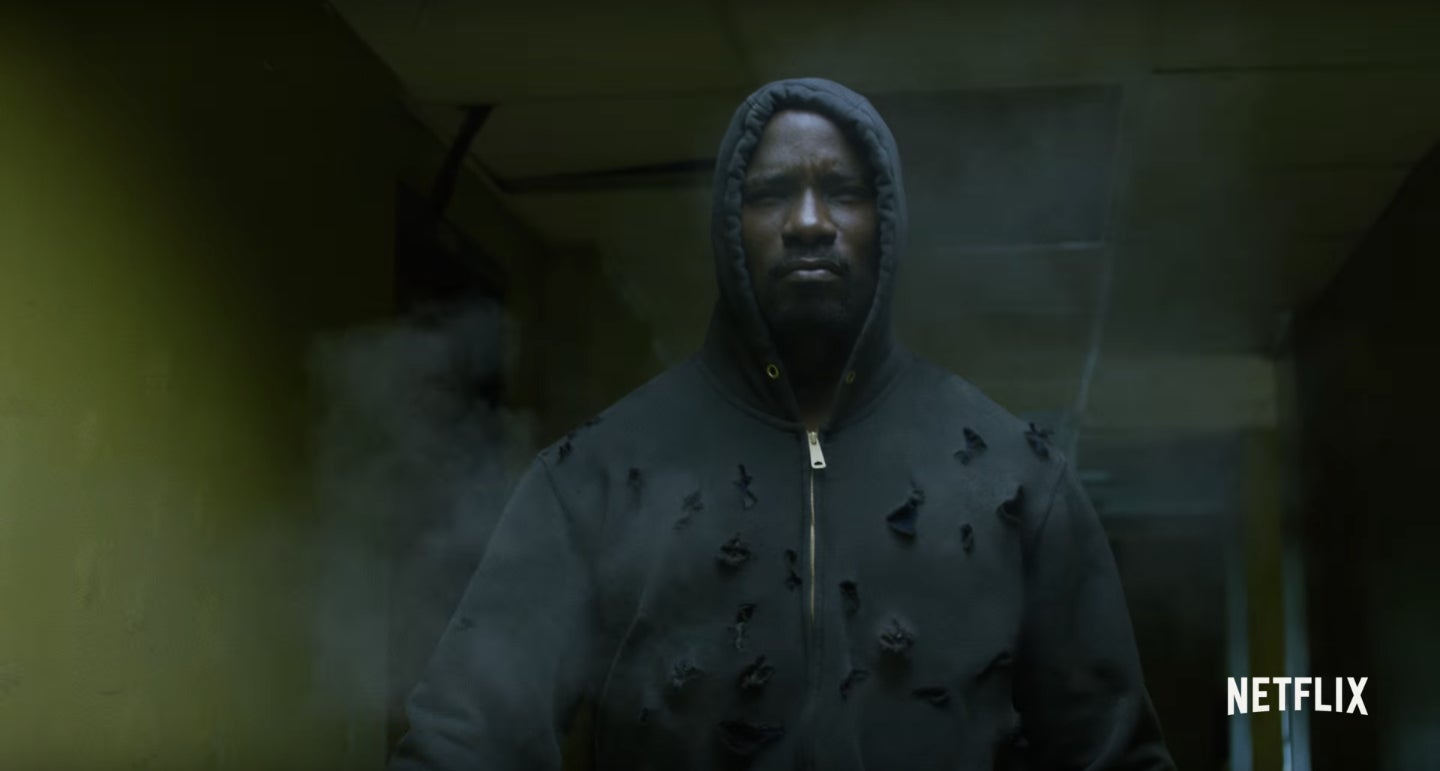Luke Cage takes on the ultimate villain: America’s toxic black male stereotypes
The main bad guy in the new Luke Cage Netflix series didn’t want to be a bad guy.


The main bad guy in the new Luke Cage Netflix series didn’t want to be a bad guy.
Cornell “Cottonmouth” Stokes (Mahershala Ali) is a musician. As a young boy (played by Elijah Boothe), Cornell wanted to be composer and pianist like real life jazz legend Billy Strayhorn, who is name-checked more than once in the series. Stokes’ family is a Harlem gangland powerhouse, however, and his aunt, Mama Mabel (LaTanya Richardson Jackson), insists on her nephew joining the family business. “He need to learn how to piss standing up,” she declares as she sends him off to dispose of a body.
Luke Cage works hard to reject the equation of black male masculinity and criminality. It sympathizes with Cornell, who is trapped by idea that black men cannot be sensitive or vulnerable. Mabel, as the avatar of Hollywood’s limited imagination, demands that he be a villain. But despite the show’s best efforts, it ultimately succumbs to the fact that superhero stories require villains, and—especially—require violence. Like Mabel, the genre demands pissing contests, and that limits the Luke Cage’s ability to question what manliness is or can be.
The show’s main protagonist, Luke Cage (Michael Colter), is big, muscular, dark-skinned, and often wears a hoodie. In other words he’s the image of black masculinity many racist Americans perceive as inherently threatening—the “demon” that police officer Darren Wilson described when confronted with a 17-year-old African American teen named Michael Brown. But Luke Cage takes that image and turns it around. Colter as Cage projects vulnerability, humor, and intelligence. He’s no monster, but a very appealing and intelligent protagonist. And again and again throughout the series, Cage uses his invulnerable body to shield others, enemies as well as friends. “I’m not the hero type,” he says self-deprecatingly.
In a racist society, Cage doesn’t look the way a hero typically looks, but he nonetheless picks up the supposedly white tropes of superhero masculinity for himself, his family, and his neighborhood. Black maleness, for Cage, doesn’t mean shooting and killing. It means standing up for your community, and defending the weak.
The most thorough challenge to to stereotypical visions of violent black masculinity, however, doesn’t come from Luke’s character. Rather, it’s Cage’s father-in-law “Pops” Hunter (Frankie Faison). As a young man, Pops was a gangster himself; the nickname “Pops” refers to the sound his fists would make when he was beating one of his victims. But as he got older, and after a stint in prison, Pops renounced the streets. His barbershop became a gathering place for both his peers and for youth. It’s known as neutral ground, “like Switzerland.” He uses his reputation and his name to deescalate conflict. He’s a man because he’s a man of peace.
Pops doesn’t just inspire children. He also inspires Luke. Pops gives him a job sweeping floors in the shop. More, he insists that Luke use his abilities—not just his invulnerability and strength, but his skill tracking people down—to broker a parley with Stokes. Throughout the series, Cage continually refers to Pops’ example as he accepts his own role as a man: a role that means, specifically, protecting people rather than victimizing them.
But superhero masculinity has its own imaginative limits. Luke Cage, the series, admires Pops’ policies of deescalation. But embracing them would mean no fight scenes—and then what? Every so often, Cage expresses ambivalence about violence, or wonders whether the collateral damage of his war with Stokes is worth it. These are reasonable questions, but the series reflexively and repeatedly dismisses them. Instead, someone always pops up to goad Cage into hitting more people, often by questioning his masculinity. “Don’t be a punk and just stand by,” one woman taunts him. Claire Temple (Rosario Dawson) spends the entire series telling Cage that he needs to stand up and fight—and her romantic interest in him seems queasily linked to her obsession with his special abilities, and to his power.
The series could perhaps have made these tensions explicit. There could be an argument over tactics, for example, with Pops taking the Martin Luther King, Jr. position of nonviolent resistance and Cage arguing for Malcolm X’s stance of principled self-defense by any means necessary. Unfortunately, that argument never happens—not least because Cage’s violence is never directed in any meaningful way at white systems, or even at white people. Even Cage’s imprisonment by a racist prison system is engineered by the black villain Diamondback. Police are shown harassing black men and black children. But Cage only fights the cops when they come after him specifically; he never prevents the police from beating black people. Similarly, the Black Lives Matter movement is mentioned, but the hero doesn’t join a protest or protect nonviolent activists. Instead, Cage’s powers are used in the standard superhero way: to foil stick-ups or other criminal activity.
To cast a black man as a superhero challenges racist images of black men as violent lawbreakers and dangerous criminals. But for superheroes, manliness still means violence, and that violence is almost always directed against individual bad guys, rather than against systemic injustice. The series holds up Pops as an ideal, but from the moment he first appears on screen, it’s clear the ideology he represents is going to be discarded. Luke Cage recognizes young Cornell’s gentleness and vulnerability. But it still has to turn him into Cottonmouth.